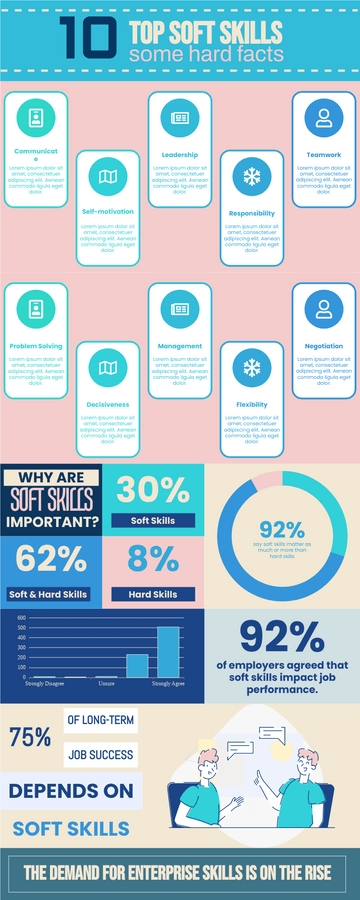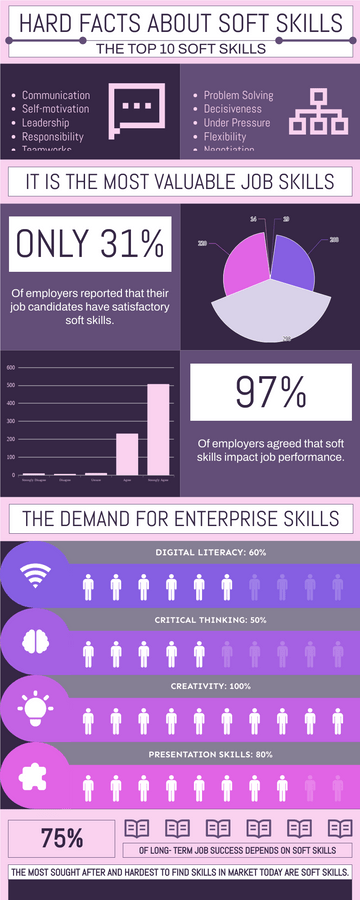Some hard facts about soft skills
Soft skills is a combination of interpersonal skills, social skills, communication skills, personality or personality characteristics, attitude, mentality, professional attributes, social intelligence and emotional intelligence, which enables people to control the environment, cooperate well with others, perform well, and achieve goals by supplementing “hard skills”.
Why Are Soft Skills Important?
Soft skills play a crucial role in the professional world, and here are some additional points to consider:
- Enhancing Workplace Relationships:
Soft skills enable individuals to build strong relationships with their colleagues, superiors, and clients. Effective communication, empathy, and teamwork foster a positive work environment and improve collaboration, leading to increased productivity and job satisfaction. - Adaptability and Resilience:
In today’s rapidly changing work landscape, adaptability is essential. Soft skills such as flexibility, problem-solving, and resilience allow individuals to navigate through challenges, embrace change, and quickly adjust to new circumstances or technologies. - Leadership and Management:
Soft skills are vital for effective leadership and management roles. Skills like emotional intelligence, decision-making, and conflict resolution enable leaders to inspire and motivate their teams, resolve conflicts, and make well-informed decisions that drive organizational success. - Customer Service Excellence:
Soft skills are fundamental in delivering exceptional customer service. Skills such as active listening, empathy, and effective communication help professionals understand customer needs, address concerns, and provide personalized solutions, fostering long-term customer loyalty and satisfaction. - Personal and Professional Development:
Soft skills contribute to personal growth and development. Continuous improvement in areas like self-motivation, time management, and adaptability helps individuals enhance their overall effectiveness and progress in their careers. - Employability and Career Advancement:
In addition to technical expertise, employers increasingly value soft skills during the hiring process. Candidates with well-developed soft skills are viewed as valuable assets, as they can easily integrate into the workplace culture, collaborate effectively, and contribute to the organization’s success. Furthermore, possessing a diverse range of soft skills opens up opportunities for career advancement and increases employability in a competitive job market.
Hard Facts About Software Skills

Visual representations like infographics can effectively convey the significance of soft skills in the professional realm. By utilizing an infographic template, you can present information in a visually appealing and easily understandable format. The use of icons, illustrations, and concise text helps capture attention and convey key points efficiently. With an infographic template, you can showcase the various soft skills such as communication, teamwork, adaptability, and leadership, highlighting their importance and demonstrating how they contribute to career success. To see more examples of an engaging infographic on the importance of soft skills, click here!
This post is also available in Deutsche, Español, فارسی, Français, Bahasa Indonesia, 日本語, Polski, Portuguese, Ру́сский, Việt Nam, 简体中文 and 繁體中文.

















